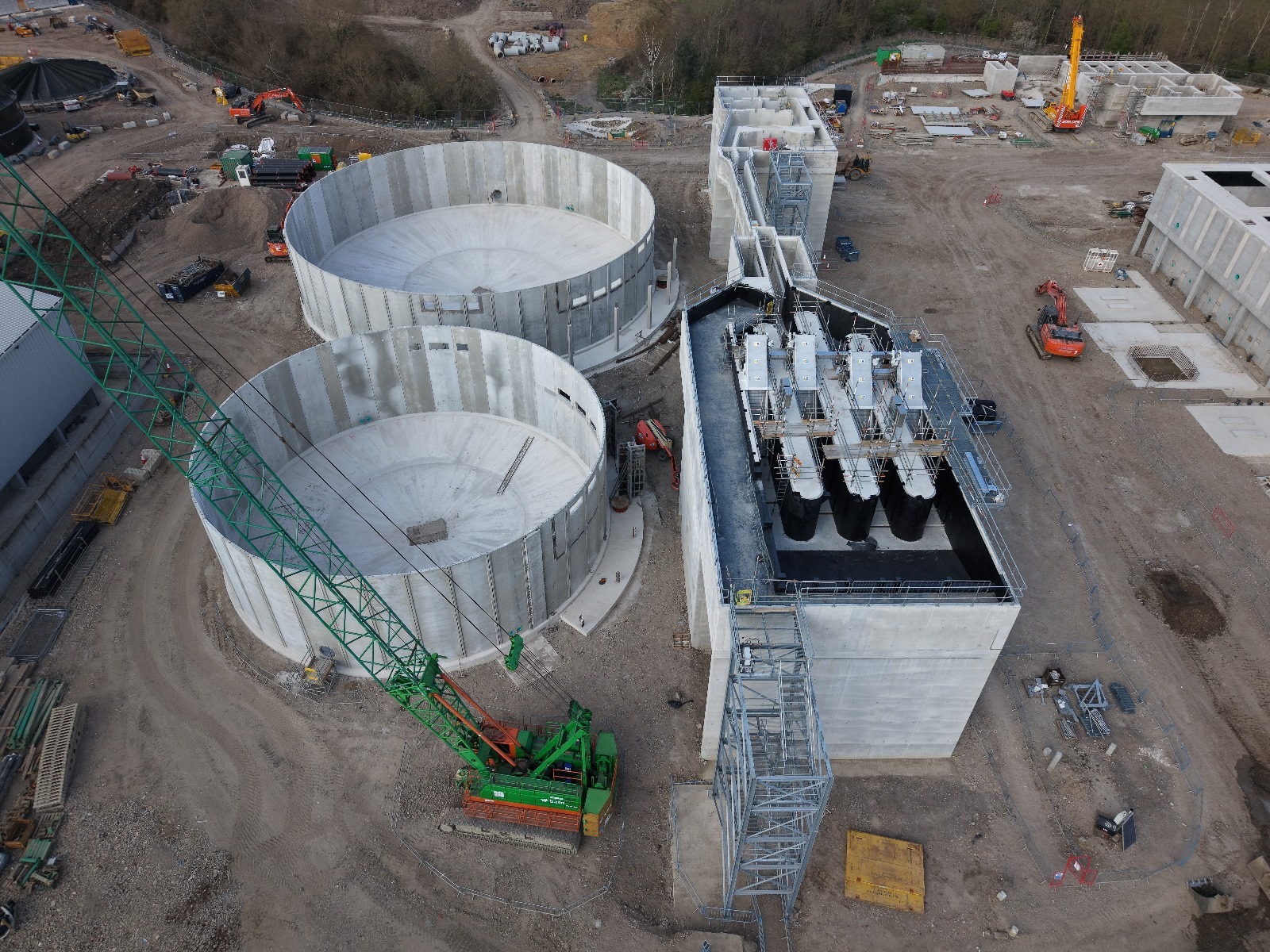
“Planner ensures we are always collecting actual project data. This is critical to understanding the root-causes of issues, and driving objective discussions on how recurrence can be stopped.”
On completion, this will prevent tens of millions of tonnes of sewerage pollution overflowing into the River Thames every year.The BAM Nuttall, Morgan Sindall, Balfour Beatty joint venture is delivering the 7km west section of the tunnel. This section runs from Acton in West London to Wandsworth in South West London and incorporates seven separate work sites along the route.
Carnwath Road Riverside
Carnwath Road Riverside is one of three launch sites for the tunnel boring machines (TBM). The works on this site includes the construction of a 48m shaft and main tunnelling works, a ventilation column and building as well asa new public space that incorporates a pedestrian zone, seating, green space and access to the Thames path. Rachel, one of the scheme’s six tunnel boring machines was launched to drive 7km to the Acton Storm Tanks site from this site.
Phil’s Story
Phil Evans is a Planner working on the Carnwath Road site, the main drive site for the west section. With the scale and complexity of the work on this site comes immense risk for the team coordinating the work. At this scale, avoiding the cost of delays takes on whole new importance. Because of this, Phil keeps a close eye on the works occurring in his area to make sure the plans are met every day. Data and analysis are critical to Phil, from managing the performance of his team and multiple subcontractors to tracking outputs and work performed. Like most projects, records on Carnwath Road were kept across various systems and formats. This makes the job of gathering evidence of delays a challenge of its own, before even beginning the process of analysing project performance.
“Aphex ensures we are always collecting actual project data. This is critical to understanding the root-causes of issues, and driving objective discussions on how recurrence can be stopped.”
Since introducing Aphex into his team, Phil has been able to automate and standardise the process of tracking project data. As each team member update their section of the plan, delay and sources of the delay are collected in a seamless process that provides Phil with objective and accurate data which can be analysed and relied on for making decisions.
This is now business as usual at Carnwath Road, Phil and his manager frequently meet to review project performance with Aphex's data at the centre of the discussion. Phil uses the analytics to start at high level performance and efficiently drill down to the root-cause of each day of delay, “in seconds, it’s possible to dig down to the level of detail that would take hours on spreadsheets.”
Aphex is also supporting Phil by monitoring the site day today. Knowing what was supposed to happen each day and having the immediate understanding of deviations from the plan provides Phil the information he needs to drive improvement and change. “With this data, I have evidence to drive change on site. It’s easier to discuss good and poor performance with our people and supply chain to learn from what’s going well and fix underperformance earlier.

Heading
Lorem ipsum dolor sit amet, consectetur adipiscing elit. Suspendisse varius Duis cursus,










